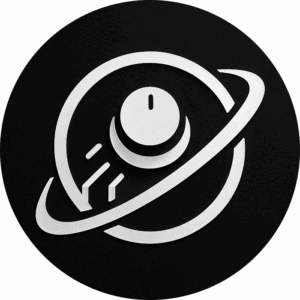Trojan Horse – October 29th – Elf Knows It [ARCHIVED]
Trojan Horse, It’s More Than A Legend.
- “By destiny compell’d, and in despair,
- The Greeks grew weary of the tedious war,
- And by Minerva’s aid a fabric rear’d,
- Which like a steed of monstrous height appear’d:
- The sides were plank’d with pine; they feign’d it made
- For their return, and this the vow they paid.
- Thus they pretend, but in the hollow side
- Selected numbers of their soldiers hide:
- With inward arms the dire machine they load,
- And iron bowels stuff the dark abode.”
-
“Laocoon, follow’d
by a num’rous crowd, - Ran from the fort, and cried, from far, aloud:
- ‘O wretched countrymen! What fury reigns?
- What more than madness has possess’d your brains?
- Think you the Grecians from your coasts are gone?
- And are Ulysses’ arts no better known?
- This hollow fabric either must inclose,
- Within its blind recess, our secret foes;
- Or ‘t is an engine rais’d above the town,
- T’ o’erlook the walls, and then to batter down.
- Somewhat is sure design’ d, by fraud or force:
-
Trust not their presents, nor admit the
horse.”
WHAT IS A TROJAN HORSE?
Much like the classical
Greek story of the Trojan Horse, a Trojan Horse (often referred to as
simply a Trojan) is hidden within a seemingly benign file waiting to
unload itself maliciously onto your computer. A trojan is often
masked by its author in applications promising benefit such as free
screen savers or through even greater deception, programs promising
anti-virus protection themselves. Common infection points include
email attachments and Peer 2 Peer, or Person 2 Person (P2P) networks,
where users feel they are downloading safe music, pictures, or game
programs only to learn they have unknowingly installed a Trojan.
EXAMPLE OF A TROJAN
A program named
“waterfalls.scr” serves as a simple example of a trojan
horse. The author claims it is a free waterfall screen saver. When
run, it instead unloads hidden programs, commands, scripts, or any
number of commands without the user’s knowledge or consent. Malicious
Trojan Horse programs are used to circumvent protection systems in
effect creating a vulnerable system to allow unauthorized access to
the user’s computer.
In
addition to disabling, erasing data ,and crashing your system, a
Trojan infection may lead to devastating issues that compromise your
privacy and identity, such as the disabling of current security
software, leaving a door wide open for information phishing programs.
Some Trojans compromise your online browser, taking you to sites that
resemble actual, legitimate online companies such as banks and
mortgage companies, where the user is invited to provide information
such as bank account and password information in order to “verify”
identity. The most malicious versions of this threat contain screen
shot programs and key-stroke logging software that gather information
such as passwords and credit card numbers and send them off to be
exploited. A Trojan may also have the ability to allow backdoor
access to your entire system, allowing groups to directly manipulate
and retrieve any information they want whenever you are on the
internet.
HOW TO KEEP AN EYE OUR FOR TROJANS
In addition to constantly
managing the programs you download and encounter on the web, this
threat can best be combated by installing powerful spyware software
that monitors and verifies downloaded files for malicious content
before you unknowingly open them. These programs have the benefit of
having large libraries of known Trojans and are constantly updating
their definitions to counter newly developed programs. Use them as
front-line protection and to identify and safely remove possible
infections already in place. The importance of identity protection is
vital in this modern age of information.
HOW TO REMOVE A
TROJAN
Since
Trojan horses have a variety of forms, there is no single method to
delete them. The simplest responses involve clearing your temporary
internet files and deleting it manually. Normally, anti-virus
software is able to detect and remove the trojan automatically. If
the antivirus cannot find it, booting the computer from alternate
media(cd) may allow an antivirus program to find a trojan and delete
it. Updated anti-spyware
programs are also efficient against this threat.
A
great program to combat Trojans is Ad-Aware
by Lavasoft, you can grab it at http://www.lavasoft.com/


